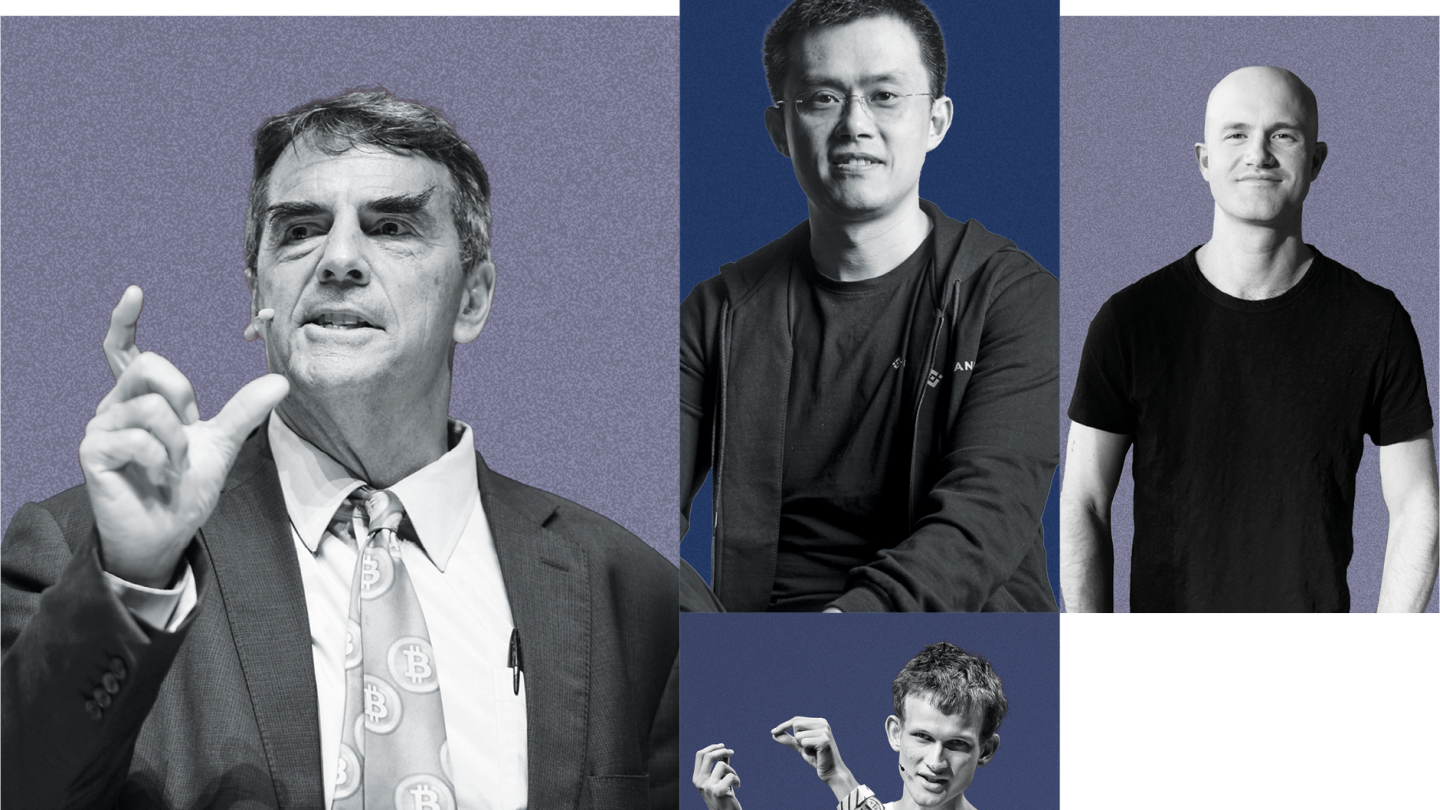Who owns the most cryptocurrency?

Simply sign up to the Cryptocurrencies myFT Digest -- delivered directly to your inbox.
Who are the biggest holders of bitcoin?
Several early buyers of bitcoin are likely to have ended up as the wealthiest people in the cryptocurrency markets. Many have promoted a strategy of holding on for future profits — “hodling”, in the vocabulary of cryptocurrency advocates.
One anonymous bitcoin account that began purchasing the tokens in March 2011 — and has never sold any — sits on a fortune of $4.8bn, according to the cryptocurrency analytics website BitInfoCharts.
A recent paper from the US National Bureau of Economic Research estimated that the top 1,000 Bitcoin investors control about 3m bitcoin, or roughly one-seventh of the cryptocurrency’s total potential supply. Only a small handful of those holders have revealed their identities.
Cameron and Tyler Winklevoss, the twin brothers best known for losing a legal battle with Mark Zuckerberg over the social network idea behind Facebook, purchased a reported 120,000 bitcoin in 2012, a haul that would be worth $7.2bn as of mid-November.
In a 2014 auction, venture capitalist Tim Draper (pictured above, left) beat other bidders to buy 29,655 bitcoin that US Marshals had seized from the dark web emporium Silk Road. Those tokens would be worth $1.8bn at today’s prices. Draper declined to say at the time how much he had paid in the auction, but the Marshals put the lot’s value at about $18m.
Michael Saylor, chief executive of MicroStrategy, a software company, said last year he had over time bought 17,732 bitcoin at an average price of less than $10,000; that holding would be worth $1.1bn at current prices.
What about other cryptocurrencies?
Founders of newer blockchains such as Ethereum have also reaped large fortunes. Vitalik Buterin (pictured above, bottom right), its creator, received a reported 553,000 ether from an initial endowment set up by the co-founders, a holding that would be worth $2.3bn at today’s prices.
The teams behind several cryptocurrency projects that aim to rival Ethereum adopted a similar approach, rewarding themselves with substantial chunks of their own token supplies.
Binance coin, the token associated with the Binance Smart Chain, has soared to a market capitalisation of nearly $100bn in four years. The founding team, which includes the Binance exchange’s outspoken founder Changpeng Zhao (pictured above, top right), awarded itself 40 per cent of the token’s total supply.
Solana, a blockchain that has gained popularity as an alternative to Ethereum for decentralised finance apps, sold just under 13 per cent of the token’s total supply to the founding team for 20 cents per token. At current prices those tokens would be worth $13.5bn.
Some analysts have questioned the fairness of these initial token distributions, arguing that they contradict the supposedly decentralised nature of cryptocurrency networks.
“Those allocations would be fine if these were companies — it’s not crazy to see that much ownership,” says Ryan Watkins, a senior research analyst at Messari, a cryptocurrency analytics service. “But, when you’re building systems that are supposed to be more democratic, it just isn’t democratic.”
Who has made the most money from cryptocurrency-related companies?
Brian Armstrong, co-founder of cryptocurrency exchange Coinbase, ranks as the wealthiest founder of a public crypto services company.
Armstrong owns more than 36m shares in the company, worth more than $12bn. He also sold shares worth more than $290m on the day of Coinbase’s direct listing, an alternative to the traditional initial public offering that has no restrictions on stock sales. Armstrong’s co-founder, Fred Ehrsam, owns shares worth $3.8bn.
Other cryptocurrency start-up founders hold large stakes in their companies that could be worth billions of dollars on paper. Forbes estimated that Sam Bankman-Fried, founder of cryptocurrency exchange FTX, was worth $22.5bn this year, much of it from his roughly half stake in the $25bn start-up.
Barry Silbert, founder and chief executive of Digital Currency Group, a digital assets company, told the Financial Times that he owns just under 40 per cent of the company, which investors recently valued at $10bn during a private secondary share sale. Silbert says he has not sold any shares in the business.

Why is it so difficult to determine the largest cryptocurrency holders?
Big cryptocurrency holders typically are reluctant to discuss their buying and selling decisions because of fears about hacking, tax authorities and other risks.
“I think anybody involved with cryptocurrency is certainly reluctant and, in my case, unwilling to share anything,” Silbert says. “I joke that I lost all my bitcoin in a boating accident,” he adds, referencing a meme among bitcoin investors about a putative excuse given to tax authorities about losing a crypto wallet.
While blockchains can make it easier to publicly track the flow of cryptocurrencies, they also mask the identities of their owners. Some applications, such as Nansen, attempt to match blockchain addresses to investment funds and other big holders, but they can be unreliable.
How easily can these stakes be turned into cash?
The volatile and concentrated nature of cryptocurrencies means large purchases and sales can have a big effect on the market. Some start-ups have attempted to solve the problem by acting as intermediaries that route orders to multiple venues providing the best prices.
Large crypto transactions can also draw a backlash from other traders. Earlier this year, cryptocurrency watchers began buzzing about an anonymous investor who had turned early purchases of shiba inu tokens in August last year into a $5.7bn stockpile little more than a year later, following a big rise in the token’s value.
However, the trader soon attracted attention after moving $2.3bn of the stake to four different cryptocurrency wallets, sending the price of the token plummeting without even apparently making any sales.
Weekly newsletter
For the latest news and views on fintech from the FT’s network of correspondents around the world, sign up to our weekly newsletter #fintechFT

Comments